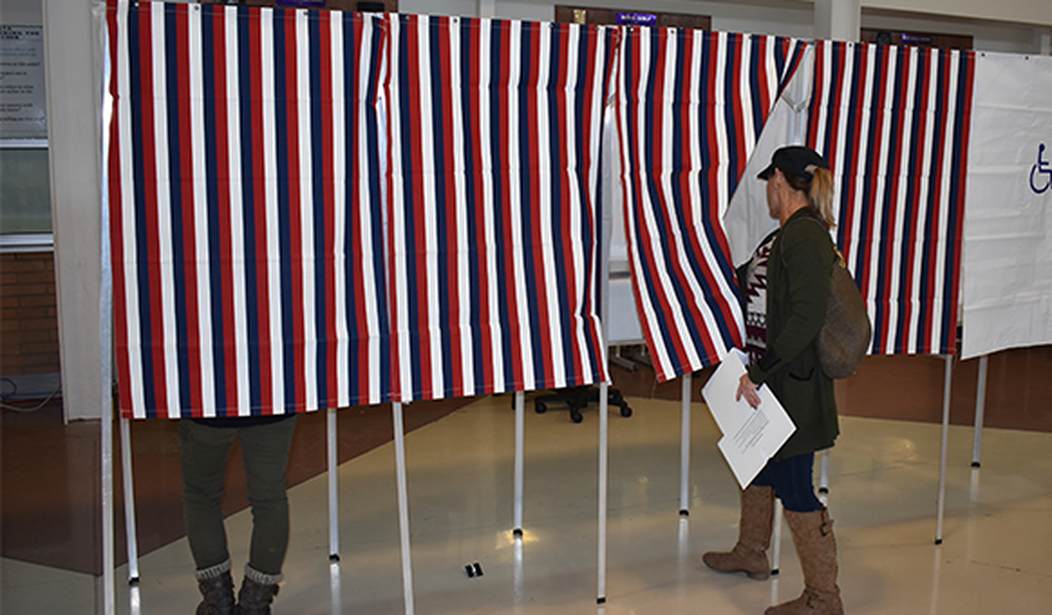There's a special House election coming up on April 1 to fill the seat left vacant when Rep. Mike Waltz resigned from Congress to serve as national security advisor to Donald Trump. Democrats are pulling out all the stops, hoping to catch lightning in a bottle and steal a seat in a district that gave Donald Trump a 30-point margin of victory.
Trump's handpicked successor to Waltz is Republican State Sen. Randy Fine (R-19th District). His opponent is math teacher Josh Weil. Weil has reportedly raised $10 million for the race, with the state Democrats vowing to raise another $5 million by election day.
Fine has raised just $1 million, which has annoyed several Republicans in the state, including Governor Ron DeSantis, who clashed with Fine during the 2024 campaign when the state senator flipped his endorsement from DeSantis to Trump.
“We are annoyed but not worried,” added one national GOP strategist. The national politico spoke on the condition he wouldn't be identified. “Annoyed Fine hasn’t done jack s**t for himself and is counting on the ecosystem to bail him out," he added.
That "ecosystem" has nurtured several high-powered GOP candidates, including DeSantis, who got his start running for Congress in the same district.
However, DeSantis doesn't think the Democrat has a chance, no matter how much money he spends on the race. He called it a “liberal media” bias to say it was close because voters viewed it as a referendum on Trump.
“It’s a candidate-specific issue,” DeSantis said. “I think the district is so overwhelmingly Republican that there’s literally — it’s almost impossible for somebody with an ‘R’ by their name to lose that district. I would anticipate a Republican candidate is still going to be successful. Do I think they’ll be able to get even close to the margins that I received or President Trump received? No. Is that a reflection on the president? Absolutely not. It’s a reflection of the candidate running in that race.”
Special elections anywhere in the country have notoriously feeble turnout, according to an analysis in the New York Times last year.
In the typical special election, half of voters are 65 and over. Nearly every special election voter has participated in a recent primary election. Almost everyone is a registered Democrat or Republican. Young voters, irregular voters and independent voters are much scarcer. The nonwhite share of voters is typically smaller. A general election poll with these demographic characteristics would be laughed out of the room.
As a result, special elections behave very differently from higher-turnout elections. They’re mostly decided by turnout, as the electorate consists almost entirely of the most partisan and least persuadable voters. At the same time, special election turnout is extremely volatile, with the ultralow turnout enabling turnout advantages that simply don’t happen in higher-turnout and regularly scheduled general elections.
“If the Republicans were behind in the House — as the Democrats are now — and the national party decided that they were going to go after those seats, you would see the same kind of money come in,” said Flagler County GOP Chair Perry Mitrano.
According to a review of Federal Election Commission data by the state GOP, the vast majority of Weil's money is coming from out of state.
“This is an opportunity for us to get in front of Trump’s Project 2025 agenda,” Weil said. “Ninety-nine percent of the country doesn’t get a vote on this,” he added, “but they want to be actively involved. They want to have a say. And so they’re speaking with their money.”
Democrats have been trying desperately to make the special election about Trump. That may backfire on them in a district that embraced him overwhelmingly.
Your favorite PJ Media writers are working hard to bring you the best opinions and news in the business. Support us by becoming a VIP Member! We're giving you a 60% discount on the regular VIP Membership with the promo code "FIGHT." Click here to join and receive your discount.










Join the conversation as a VIP Member